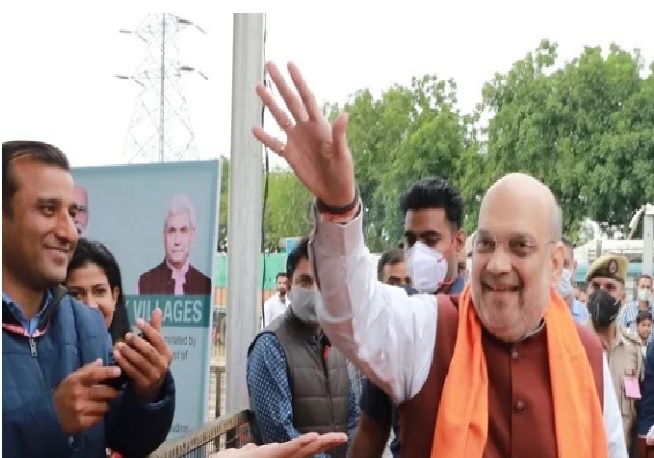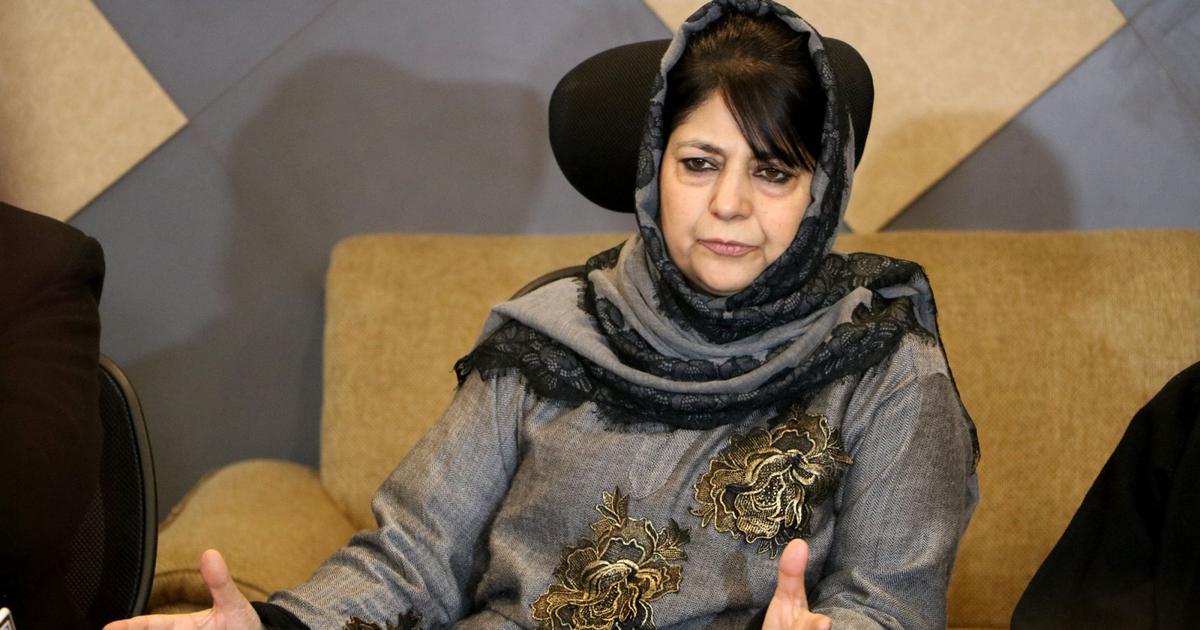Mehbooba Mufti Urges Return of J&K Assembly Seats for Pandits, Criticizes BJP Policy
By: Javid Amin | 02 August 2025
A Bold Call for Integrated Representation
At the PDP’s recent event, Mehbooba Mufti delivered a deeply personal and political statement: the BJP had missed a critical opportunity to heal communal rifts by refusing to create two assembly seats directly elected by Kashmiri Pandits. Instead, it opted for nomination, which she argued only deepens alienation and undermines democratic inclusion.
Her remarks blended passionate appeals for political integration, pointed criticisms of the BJP’s current governance, and urgent calls for justice and local empowerment.
Spotlight Demand: Two Reserved Assembly Seats for Kashmiri Pandits
01. The Argument for Reservations
Mehbooba argued that reserving two seats for Pandits would:
-
Encourage conventional electoral representation, not symbolic gestures
-
Foster shared political dialogue between Pandits and Muslims
-
Encourage return of displaced Pandits, by offering real democratic stakes
“Had they come for votes, it would’ve brought the communities closer,” she emphasized—asserting that political inclusion matters more than token representation.
02. What Was Done Instead?
-
The BJP chose to nominate two Pandit members instead of holding elections or reservation.
-
This method, Mehbooba said, lacks legitimacy and fails to restore trust or dignity.
Broader Critique: Flaws in BJP’s Kashmir Policy
01. Militarization of Pilgrimages
Mehbooba lamented that Amarnath Yatra, once a spiritual pilgrimage intertwined with local participation, now feels like a “no-go zone for locals.” She accused the BJP of making militarized Yatras that alienate villagers and disrupt traditional hosting roles.
02. Electricity Injustice
She criticized power agreements where Kashmir’s hydropower outputs serve national grids, but locals continue to face shortages and blackouts.
“We generate but don’t consume—both economically and politically, Kashmir is being short‑changed.”
03. Justice for Tribal Youth
On the issue of tribal youth, Mehbooba highlighted:
-
A distressing pattern of mysterious deaths
-
Harassment and custodial abuse by police
-
Calls for accountability and immediate forensic investigation
Pandit Representation vs. Tokenism: The Political Stakes
01. Why Elections Matter
Mehbooba’s insistence on direct election rather than nomination highlights:
-
The democratic legitimacy elections bring
-
Opportunities for Pandit leaders to debate, campaign, represent constituencies
-
Increased visibility of community issues in the Assembly
02. Risks of Nomination
-
Nominees can be easily replaced or disgraced
-
They lack grassroots connection
-
They don’t sway public perception or foster cross‑community healing
Larger Themes: Identity, Governance & Reconciliation
Mehbooba’s statement ties into major themes:
-
Inclusive governance vs. symbolic gestures
-
Development and justice vs. militarized politics
-
Political integration as reconciliation, not marginalization
These themes connect back to her father Mufti Mohammad Sayeed’s vision of “healing through dignity.”
Political Responses & Public Sentiment
01. From BJP
Some state-level BJP leaders expressed skepticism:
-
Any reservation must go through Ministry of Home Affairs and security clearances
-
They reaffirmed that no special status or expanded autonomy will be entertained
02. From Opposition & Civil Society
-
NC and Congress welcomed her argument for electoral representation
-
Kashmiri Pandit organisations and youth groups called for wider consultation
03. Public Response
In Kashmir’s towns and camps once filled with displaced Pandits, reactions ranged:
-
Support, for pushing political inclusion
-
Criticism, citing continued distrust of all mainstream parties
-
Hope, that representation might foster more tangible reconciliation
Historical Context: Pandit Displacement & Political Exclusion
-
Pre‑1990, Pandits had elected Assembly representation amid open campaigning.
-
Post‑migration, their disenfranchisement grew, and they remained disconnected from policy decisions in the Valley.
-
Symbolic gestures (like reservations in DDC or nominations) have not restored trust or dignity.
Analysis: Could This Be a Turning Point?
Mehbooba’s demand represents more than just criticism—it might signal:
-
PDP’s strategic repositioning toward communal healing
-
A more inclusive vision for J&K politics
-
A test for BJP—whether electoral redemption or reconciliation matters beyond formalism
What’s Next? Paths to Political Inclusion
01. Legislative Route
Passing reservation requires:
-
Broader political consensus in J&K Assembly or Parliament
-
Support from Home Ministry and coordination in Union legislature
02. Community Engagement
-
Pandit groups, civil society, and youth must be consulted
-
Joint Muslim‑Pandit forums might help define seat structure and representation
03. Electoral Preparation
Definition of seats (geographical or symbolic), voter rolls, and outreach would need clarity.
Bottom-Line: Beyond Rhetoric—Toward Real Inclusion
Mehbooba Mufti’s call is simple but profound: true reconciliation must be democratic, not tokenistic. Her demand for elected Pandit representation challenges tokenism and demands real political integration.
This moment can be a pivot—if politics in J&K moves from symbolic gestures to structural inclusion, especially for Kashmiri Pandits who seek political voice and co‑ownership of society.
Whether her call will influence party agendas, legislative reform, or public sentiment remains to be seen—but its moral and political clarity cannot be ignored.



